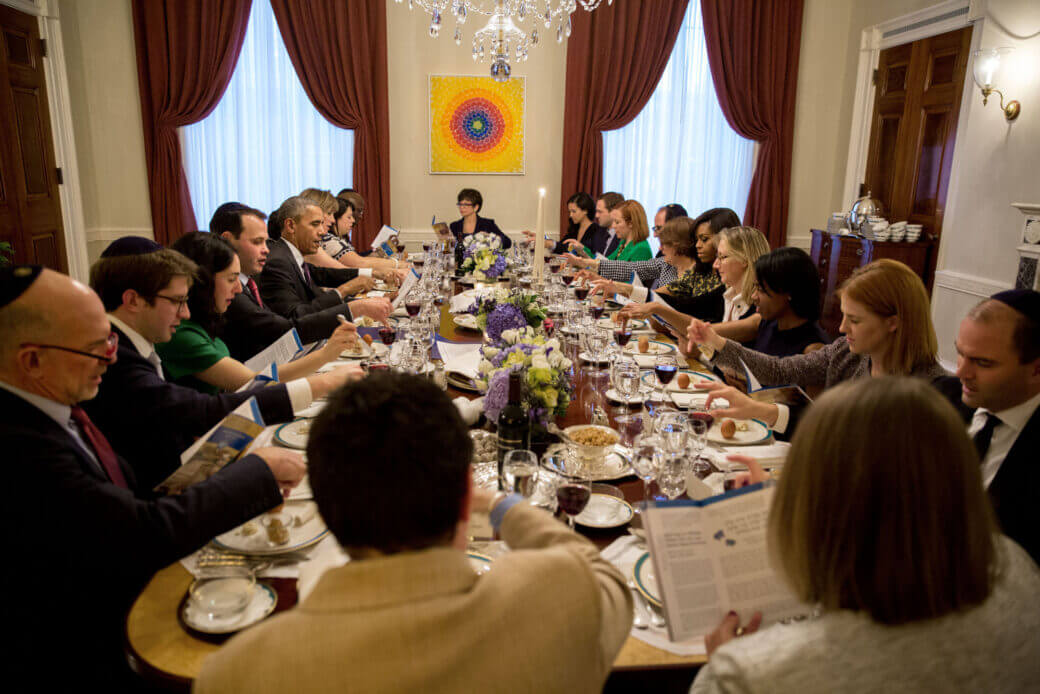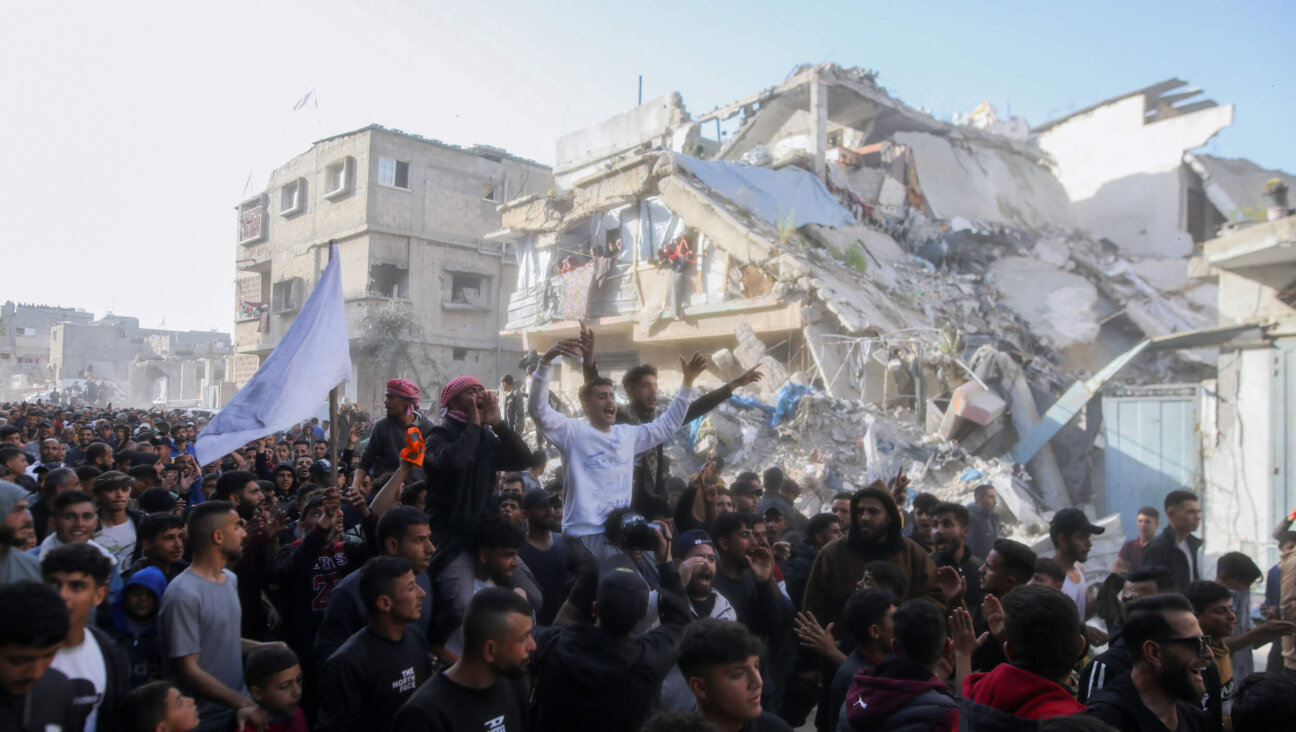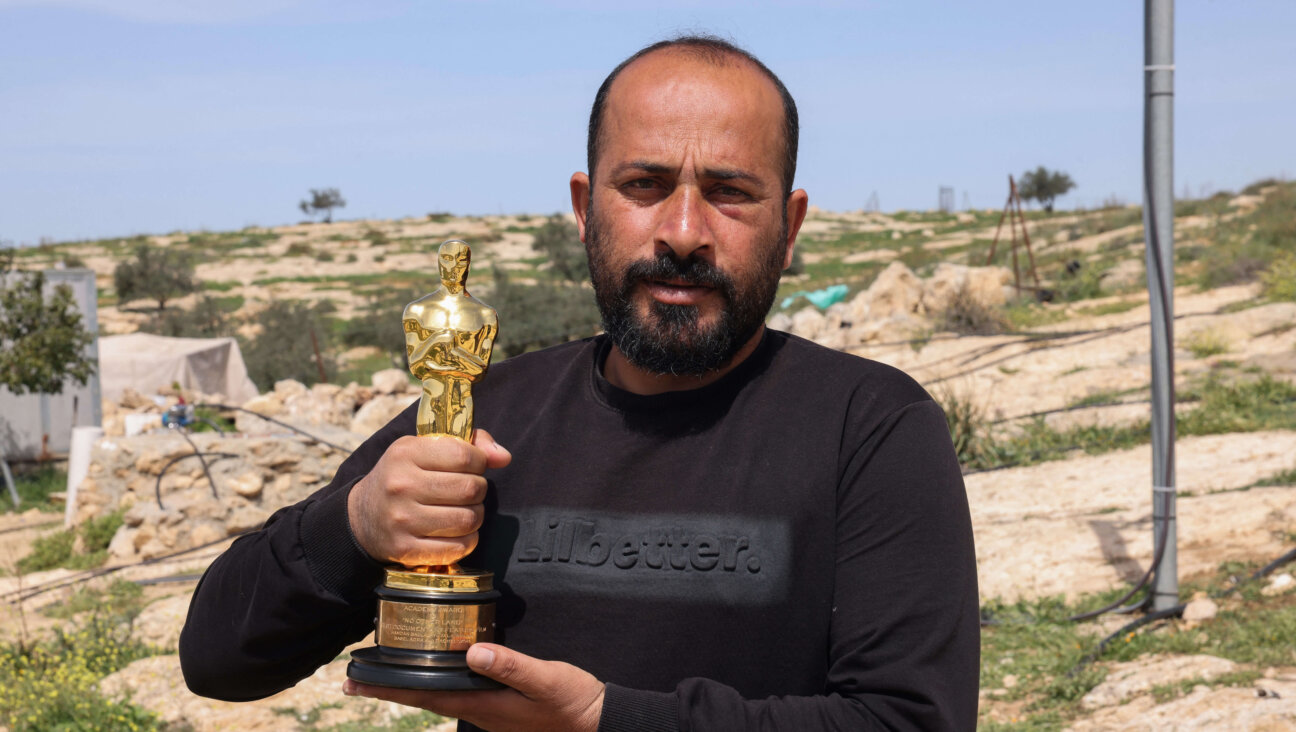Israel’s Tomorrow, Today
More than that of any other country in the world, Israel’s fate is dependent on “tomorrow” — a tomorrow that comes closer day by day with the approach of August 15, the date set by Prime Minister Sharon to begin Israel’s planned withdrawal from Gaza.
How does Israeli society look from afar during these critical days? Above all, split into two almost equal camps. The right knows just what it wants: to prevent the realization of Sharon’s plan. Although the opponents of the Gaza pullout have exhausted every legitimate means of reaching their goal, they constantly devise new methods of protest and obstruction. However, it must be admitted that they demonstrate great powers of imagination and ingenuity, not to mention extreme cynicism.
The left remains passive, possibly because their goals, at least in regard to the pullout, are in almost complete agreement with those of Sharon’s government. At the same time, though, they have nothing to say about the pullout, since their initial hope — that peace would follow the unilateral withdrawal — is being blotted with bloody stains of hatred and obstinacy by the continuing Palestinian war against Zionism. Palestinian militants couldn’t care less whether an Israeli is on the right or the left: Every Israeli is, first and foremost, an enemy.
Between the two camps, right and left, is the state itself. At this time, the government, the army and the police all lack a clear idea of how to remove thousands of Gaza settlers, many of whom appear willing to risk their lives rather than leave their homes. Obviously, the leaders of the opposition to the Gaza pullout aren’t sitting on their hands. They are planning huge marches to Gaza in support of the settlers on August 15. Are the police ready for that? Are the generals morally prepared to interrupt their usual operations in order to send in troops — not to defend the people, but to confront them?
But perhaps the gravest question for every Jew today, and especially every Israeli, is this: Will we have the stomach to watch the television coverage of the Gaza pullout? Hundreds of television stations around the world are preparing for the show. Can we bear to look?
Israel’s victory in the Six-Day War of 1967 transformed the image of the Jew among the nations of the world. Even the antisemites among them view Jews differently. The Jews gained a new feeling of security, no matter their country or ideology. At that moment we all understood — or, more precisely, felt — that this bit of land in the Middle East wasn’t just a speck on the map where an obstinate part of our people were playing at being a country. Thanks to the existence of this little country, we all had become a people.
Now, in these fateful days before “tomorrow,” Jews all over the world do not have a sense of security. Our hearts are anxious, even alarmed. What will happen if blood is spilled, God forbid? Does it matter which camp will have more victims? The real tragedy of this historical moment is that our children see everything their parents are experiencing, no matter what camp they belong to. They, the children of Israel, will have to live in the tomorrow that is being made today. What will they bring to it?
is editor of the Yiddish Forward, where this essay first appeared as an editorial. It has been translated by Leizer Burko.
The Forward is free to read, but it isn’t free to produce

I hope you appreciated this article. Before you go, I’d like to ask you to please support the Forward.
At a time when other newsrooms are closing or cutting back, the Forward has removed its paywall and invested additional resources to report on the ground from Israel and around the U.S. on the impact of the war, rising antisemitism and polarized discourse.
Readers like you make it all possible. We’ve started our Passover Fundraising Drive, and we need 1,800 readers like you to step up to support the Forward by April 21. Members of the Forward board are even matching the first 1,000 gifts, up to $70,000.
This is a great time to support independent Jewish journalism, because every dollar goes twice as far.
— Rachel Fishman Feddersen, Publisher and CEO
2X match on all Passover gifts!
Most Popular
- 1

Film & TV What Gal Gadot has said about the Israeli-Palestinian conflict
- 2

News A Jewish Republican and Muslim Democrat are suddenly in a tight race for a special seat in Congress
- 3

Fast Forward The NCAA men’s Final Four has 3 Jewish coaches
- 4

Culture How two Jewish names — Kohen and Mira — are dividing red and blue states
In Case You Missed It
-

Fast Forward Britain’s Tate to return Nazi-looted painting to heirs of Jewish art collector
-

Fast Forward 3 sentenced to death for murder of UAE Chabad rabbi
-

Books The White House Seder started in a Pennsylvania basement. Its legacy lives on.
-

Fast Forward The NCAA men’s Final Four has 3 Jewish coaches
-
Shop the Forward Store
100% of profits support our journalism
Republish This Story
Please read before republishing
We’re happy to make this story available to republish for free, unless it originated with JTA, Haaretz or another publication (as indicated on the article) and as long as you follow our guidelines.
You must comply with the following:
- Credit the Forward
- Retain our pixel
- Preserve our canonical link in Google search
- Add a noindex tag in Google search
See our full guidelines for more information, and this guide for detail about canonical URLs.
To republish, copy the HTML by clicking on the yellow button to the right; it includes our tracking pixel, all paragraph styles and hyperlinks, the author byline and credit to the Forward. It does not include images; to avoid copyright violations, you must add them manually, following our guidelines. Please email us at [email protected], subject line “republish,” with any questions or to let us know what stories you’re picking up.















